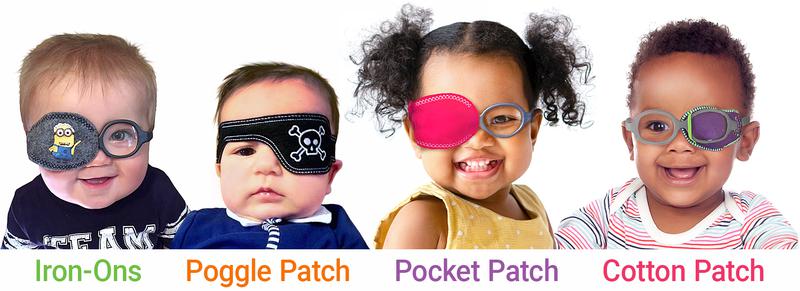Lazy Eye (Amblyopia) Treatment for children in Delhi
Best Lazy Eye (Amblyopia) Treatment for Children in Delhi
Amblyopia or lazy eye occurs when one eye becomes weaker than the other in childhood. Initially, screening is important because treatment is more effective when started earlier.
Amblyopia is the most common reason for vision loss in kiddies, affecting 2 to 4 of children through the age of 15 years.
Factors Consider in Lazy Eye (Amblyopia)
A child might be more likely to have Amblyopia if they
• Were born premature
• Were lower in weight than average at birth
• Have a generic history of Amblyopia or other eye conditions
• Have intellectual disabilities or developmental delay
Common symptoms of Lazy Eye (Amblyopia)

• Trouble telling how near or far off something is( depth perception)
• Squinting or shutting one eye
• Constantly slant their head to one side
Is it possible to fix a Lazy Eye (Amblyopia) with exercises?
Although exercises for the eye would not hurt the amblyopia there's no good proof that suggests they can help on their own. With manifest on treatment, you should be following the exercise
• Color in the lines.
• Hold a pencil near your nose. Move it off, that brings it near. Focus on it as it moves.
• Do bafflement while wearing a patch on the stronger eye.
• Read while tiring a patch over the stronger eye.
Treatment of Lazy Eye (Amblyopia)
• Corrective eyewear:

Spectacles or contact lenses can correct problems like nearsightedness, farsightedness, and presbyopia that affect Amblyopia.
• Eye patches:

To stimulate the weaker eye, your child wears an eye patch over the eye with better vision for two to six or more 6 hours a day. In rare cases, wearing an eye patch too long can cause amblyopia to develop in the patchy eye. Still, it's generally reversible.
• Bangerter Filter:
This particular filter is placed on the eyeglass lens of the stronger eye. The filter blurs the stronger eye and, like an eye patch, works to restore the weaker eye.
• Eyedrops:
An eyedrop of a muscle relaxant called atropine can temporarily blur vision in the stronger eye. Generally specified for use on weekends or daily, the use of the drops encourages your child to use the weaker eye and offers a replacement for a patch. Repercussion includes sensitivity to light and eye vexation.
• Surgery:

Your child might need surgery if he or she has droopy eyelids or cataracts that affect impoverishment amblyopia If your child's eyes continue to cross or wander separately with the applicable spectacles.
However, your consultant might recommend surgical forms to straighten the eyes, in addition to other lazy eye treatments.
Diagnosis of Lazy Eye (Amblyopia)
A Patient experiences sudden vision loss just by chance of closing one eye while playing or at school. It should be treated as a medical emergency, and they should seek medical attention immediately.
To diagnose vision loss, a consultant may conduct an eye examination. They may shine a light in the person’s eyes or ask them to read the letters on a table to measure their vision.
Diagnosis includes a neurological examination to test the function of the eyes and brain.
Amblyopia is a usual cause of vision loss in children. The little one should have early and regular vision screening so the consultant can identify vision problems.
Treatments, like as patches or spectacles, can be effective when started at the earliest before vision loss is severe. Pediatricians and schools offer vision checkups. Talk to your consultant if you notice any vision or eye problems in your child.
Earlier, it was thought that adults or children beyond 8 years of age could not be offered any treatment for lazy eyes. Good News.
Now AI-based software for Vision therapy is available like Bynocs, Curesee, Revital Vision, iNET, etc which have shown promising results in the treatment of amblyopia and eyestrain issues. These can be done post-squint correction to improve binocularity and stereopsis/ depth perception.
Feel free to Contact us at +91- 8130780790 for your Child's Eye Problems and any Eye Surgery needs.
Frequently asked question
Failure to treat a lazy eye can result in permanent vision loss. It is essential to address lazy eye early to prevent irreversible damage to vision and potential complications in the future.
Factors that increase the risk of developing a lazy eye include being born prematurely, having a low birth weight, having a family history of lazy eye, and having developmental disabilities. Early detection and intervention are key to managing this condition effectively.
Ideally, treatment for amblyopia should commence in early childhood, when the connections between the eye and brain are still forming. The best results are seen when treatment begins before age 7, although children up to age 17 can still respond well to treatment.



